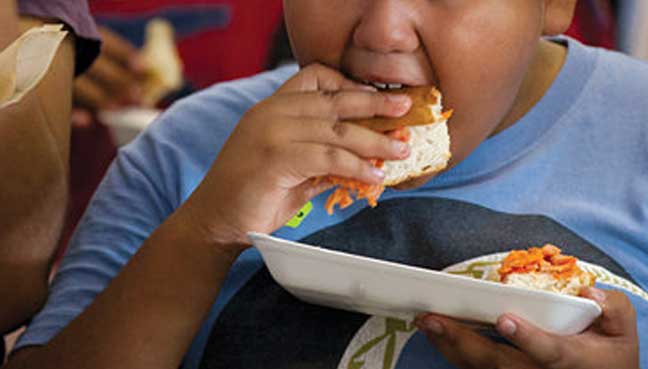Nothing represents Malaysian culture more than meeting up with your friends to lepak at your local mamak or McD for supper. And while late night munchies are becoming increasingly more common in our society today, parents should take note of how this trend of night time suppers could possibly put the future of your child’s health at risk.
Dr Satvinder Kaur, a nutritionist and assistant professor from the Malaysian Paediatric Association’s Positive Parenting programme, recently explained how late night meals are linked to a disruption of the child’s body clock, indigestion, and dental caries, as reported by The Star.
“People tend to eat after dinner not out of hunger, but due to cravings, boredom or stress, and this leads to overeating.”
As supper typically takes place close to a child’s bedtime, their metabolism is lower as compared to during the day and so the body burns fewer calories. These extra calories are stored as additional and unnecessary fat. The child’s digestive system will also face difficulties as it has less time to recover when it processes a late night meal.
“Parents need to realise that a late supper is unhealthy, especially for a child. He will be inclined to eat more than what his body requires, especially if he has already eaten dinner,” added the nutritionist.
In fact, Dr Kaur even states that late night meals could be one of the driving forces behind the prevalence of Malaysia’s worrying statistic as a leading ASEAN country in child obesity.
“If a late supper becomes habitual, the child will gain weight due to overconsumption, resulting in him being overweight or obese. Without early intervention, late suppers will persist to adulthood and will be more difficult to correct. This may become chronic and lead to more serious health problems.”
But what if your kids are already used to the late night supper lifestyle? Don’t worry parents, here are a few ways you can curb your children’s unhealthy eating habits:
Set a good example for your kids
Kids learn best by example. If parents always have late night meals, your child will think it’s acceptable for them as well. Be disciplined with your child to ensure they don’t snack unnecessarily.
Limit screen time
“Overexposure to blue light from the screen affects the body and encourages them to stay awake, which makes them more likely to snack closer to bedtime.” Limit your child’s screen time so they can fall asleep easier. Instead, encourage a lifestyle of physical activity so they can expel energy during the day and sleep better at night.
Cultivate healthy sleeping habits
Regulating a healthy bedtime schedule could also be used as a preventive measure to stop the overconsumption of food. According to Dr Kaur, children between the age range of 6-13 need about nine to 11 hours of sleep a day.
Have regular mealtimes
Following set mealtimes will “prevent cravings and overeating throughout the day, especially late at night.”
Avoid skipping meals
When you skip a meal, the chances of overeating in your next meal are considerably higher. That’s why people eat more during supper if they don’t have wholesome dinners beforehand.
Regardless of whether you’re a parent or someone who’s just looking to get healthier this year, be mindful of what you eat…and when you choose to do so.
Also read: Study Shows that Eating Rice Can Actually Help Prevent Obesity













































